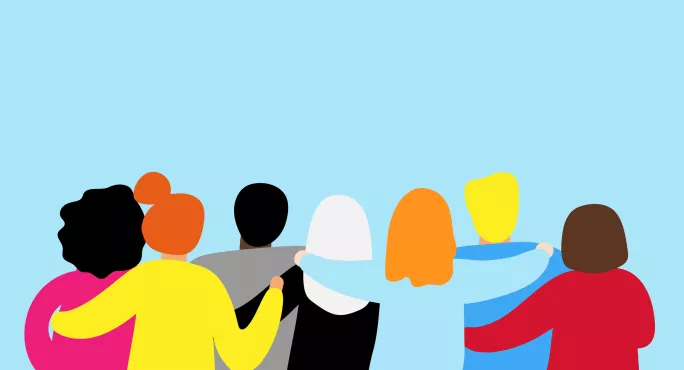
Transition 2021: What are schools allowed to do now?

Following the announcement this week that the lifting of Covid restrictions will be delayed until 19 July, many schools will be reconsidering their induction plans for their transition students.
The official guidance from the Department for Education has been updated to say that, although transition isn’t off the table, schools should revisit their plans:
“You should complete thorough risk assessments before running transitional, taster and open days in your setting, to ensure that they are run in line with your system of controls and align with the advice contained within the guidance for your setting and the roadmap out of lockdown.
“This means that traditional transitional and open days are unlikely to be feasible this academic year but we are keen not to restrict individual settings from designing events which maintain the integrity of bubbles or consistent groups, and adhere to the system of controls in place.”
So what does this mean for schools? We asked some experts for their thoughts...
Covid: The impact of restrictions on school transition days
The cancellation of in-person events
This update doesn’t mean you need to cancel your plans. Instead, your context is the most important consideration now.
James Bowen, director of policy at the NAHT school leaders’ union, says schools should be taking individualised approaches.
“We know that many schools are planning to run transition days this term, but they might not look exactly the same as they would have done prior to the pandemic. Each school is unique and the specific risk assessment will determine what might be possible in each context, there is no ‘one size fits all’,” he explains
Permitted transition activities
What you can do depends to an extent on the size of the venue you’ve got available to run the event in, says Bowen.
“Schools need to take into account things like the size of the space, and the facilities they have,” he says. “In most cases schools will be trying to limit the number of people coming into the building and the amount of time that they spend indoors.”
Bowen says that this might mean transition days need to be split for different classes, or schools might swap the classroom for outdoor spaces - particularly for children coming into Reception.
Guy Whitehead, a secondary school head of year in North London, has managed to find a way around the mixing of bubbles by moving his school’s transition days to the evenings.
“We’re going to use our parent evening slots, which we had allocated for parent meetings, to run transition events for the children,” he explains.
“Children will come in primary bubbles with their parents and have tours of the school. This retains the integrity of the bubbles, and means they get a little bit of in-person time at the school.”
Options for virtual events
Last year schools put together transition packages with minimal in-person activities, so this year no one is starting completely from scratch.
Nick Soar, executive principal at Harris Academy Tottenham and St John’s Wood in North London, has started making plans for his new Year 7s.
“Fortunately, we do have other varied and legitimate options,” he says. “There will be surveys for the Year 6s and their parents to gauge everything from their anxiety to their hopes and practical questions.”
Soar is also embracing technology with his approach to transition.
“[We also have] a hybrid model of small groups and one-to-one on site where possible, with extended films and smaller TikTok-style pieces that show the pupils what being with us will be like, but also live Zoom workshops with parents,” he explains. “And the summer school itself, although much later, will facilitate the new Year 7s’ understanding our ethos and our values.”
Postponing transition
For some parts of the country, such as Birmingham, all in-person transition has been put on hold due to higher rates of Covid.
Sonia Thompson, headteacher of St Matthew’s Research School in the city, is hoping late transition in the autumn term will be an option.
“I am truly disappointed for our children at St Matthew’s,” says Thompson. “We are still hopeful [it will be possible to arrange in] September for our local secondary schools to support us with planning some opportunities for our teachers to share what we know about our children.”
Thompson says these days will be important for ensuring that all of the information the primary schools hold on their pupils can be effectively passed on to their new teachers.
What resources are out there for schools to use?
One unfortunate consequence of moving everything online is the requirement to replicate the in-person experience with videos and handouts for parents and students.
Rather than producing everything themselves, school leaders should look at external resources to save time.
“We will also use the excellent materials published this week from the Anna Freud Centre,” says Soar. “They have produced short animated films and parental booklets with guidance on how the pandemic has affected secondary schools.”
You need a Tes subscription to read this article
Subscribe now to read this article and get other subscriber-only content:
- Unlimited access to all Tes magazine content
- Exclusive subscriber-only stories
- Award-winning email newsletters
- Unlimited access to all Tes magazine content
- Exclusive subscriber-only stories
- Award-winning email newsletters
You need a subscription to read this article
Subscribe now to read this article and get other subscriber-only content, including:
- Unlimited access to all Tes magazine content
- Exclusive subscriber-only stories
- Award-winning email newsletters
- Unlimited access to all Tes magazine content
- Exclusive subscriber-only stories
- Award-winning email newsletters
topics in this article



